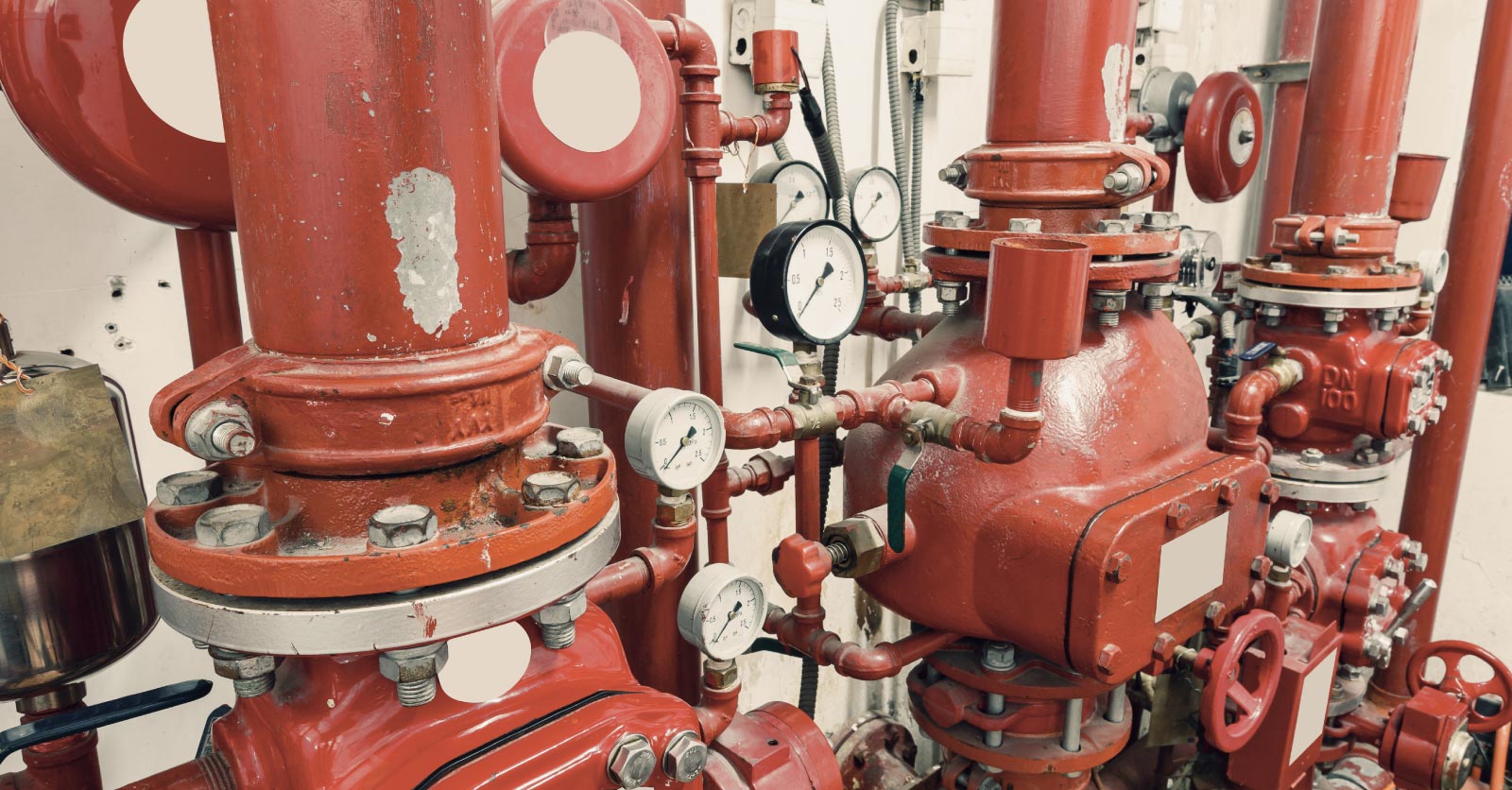Published October 22, 2015

The two most popular fire protection systems that we install are “wet systems” and “dry systems.” A wet system is where the water remains in the piping, ready to extinguish a fire whenever necessary. A dry system is one where the piping is pressurized by an air compressor, and the pressure in the piping is maintained to a certain level. When a sprinkler head is activated, the system “trips.” The sprinkler head becomes an open end in the system, which causes a reduction in system pressure. If many heads are activated due to excessive heat or fire, the compressor cannot keep the system pressurized and water is allowed to flow through the system through the open sprinkler. Because there is only air in the system, it is not necessary to keep the ambient air above freezing. Dry systems are usually installed in areas where the temperature drops below freezing.
Gauges are especially important on dry systems, because it is an indication of the pressure in the system. A very simple maintenance item is to keep a log in the riser room where all of the major components of the fire protection reside. It only takes a minute to record the pressure readings. If one day, a reduction in pressure is recorded, this is an indication that something may be amiss. The reasons could range from a cracked fitting to deteriorated piping to faulty compressor components.
Recently, one of our service techs performed a test at a client’s premises and noted that there was no pressure in the system. The system happened to be a wet system and no one had been taking gauge readings. Upon further investigation, our tech found that a valve on the water source piping had been inadvertently shut off. He opened the valve and restored pressure to the system. Had there been a fire, no water would have flowed through the piping.
Although we focus on lower-than-normal air pressure, a higher-than-normal pressure on a system can also be an indication of a problem. In some of our clients’ facilities, the sprinkler system is very high up near the roof. During the summer months, heat will cause expansion and this can cause the system pressure to rise. The danger here is that, when sprinkler equipment is subjected to pressures that exceed their rating, equipment can fail and components (such as valves and pumps) are susceptible to damage. Even if pressure surges of a lower magnitude occur repeatedly, the repeated stress cycles can weaken the system components. This is applicable to both wet and dry systems.
On a dry system, excessive pressure in a system can extend the time that it normally takes the water to discharge in the event of a fire, causing slower delivery of water to the open head.
Let us take the maintenance headaches away from you. Call us today to learn about our fire protection testing program at 508.644.2221.